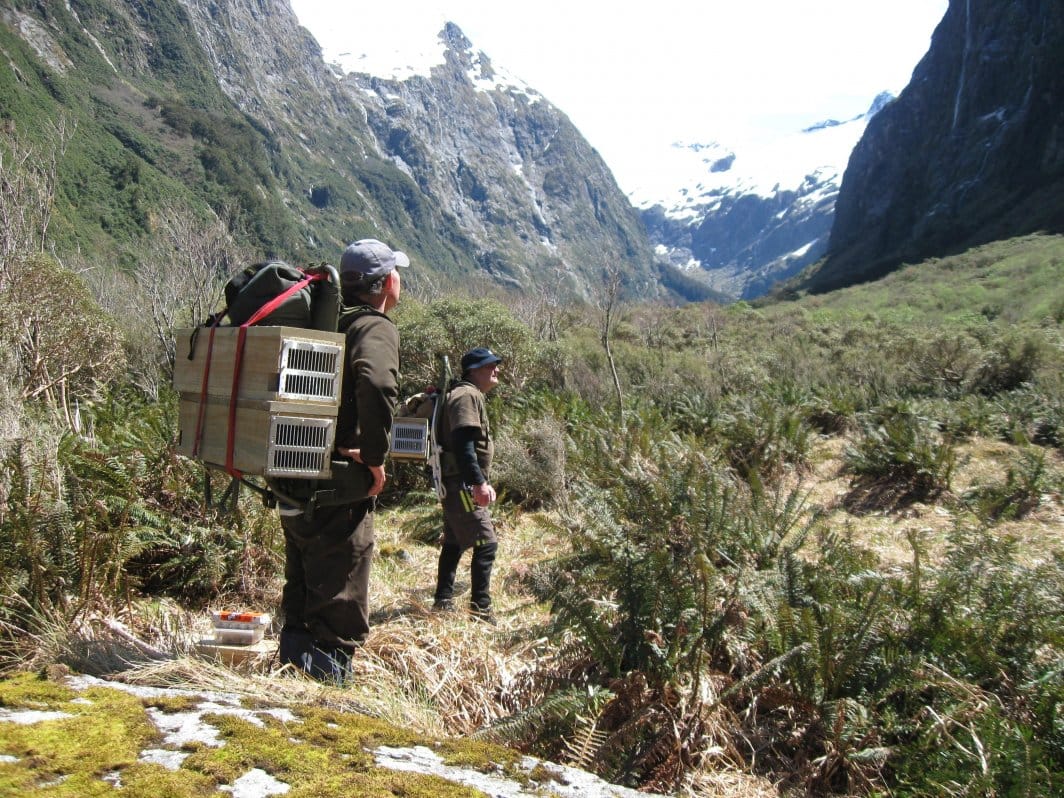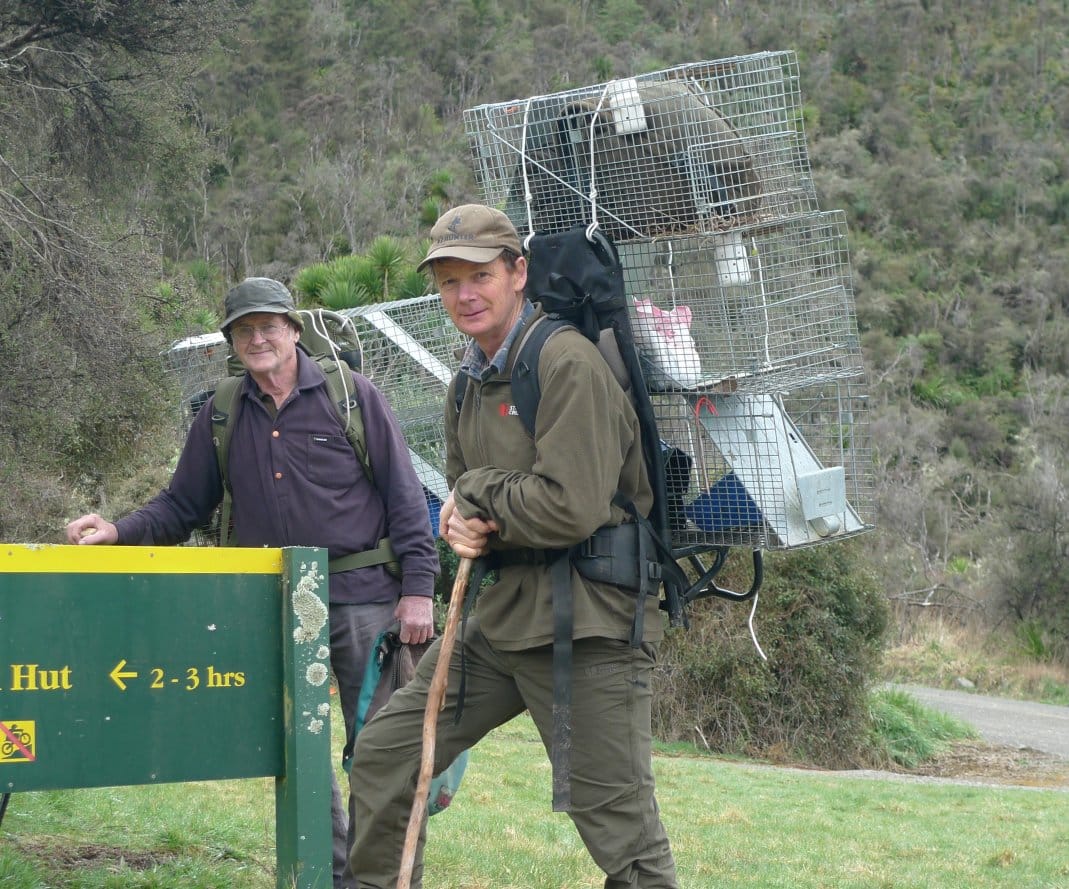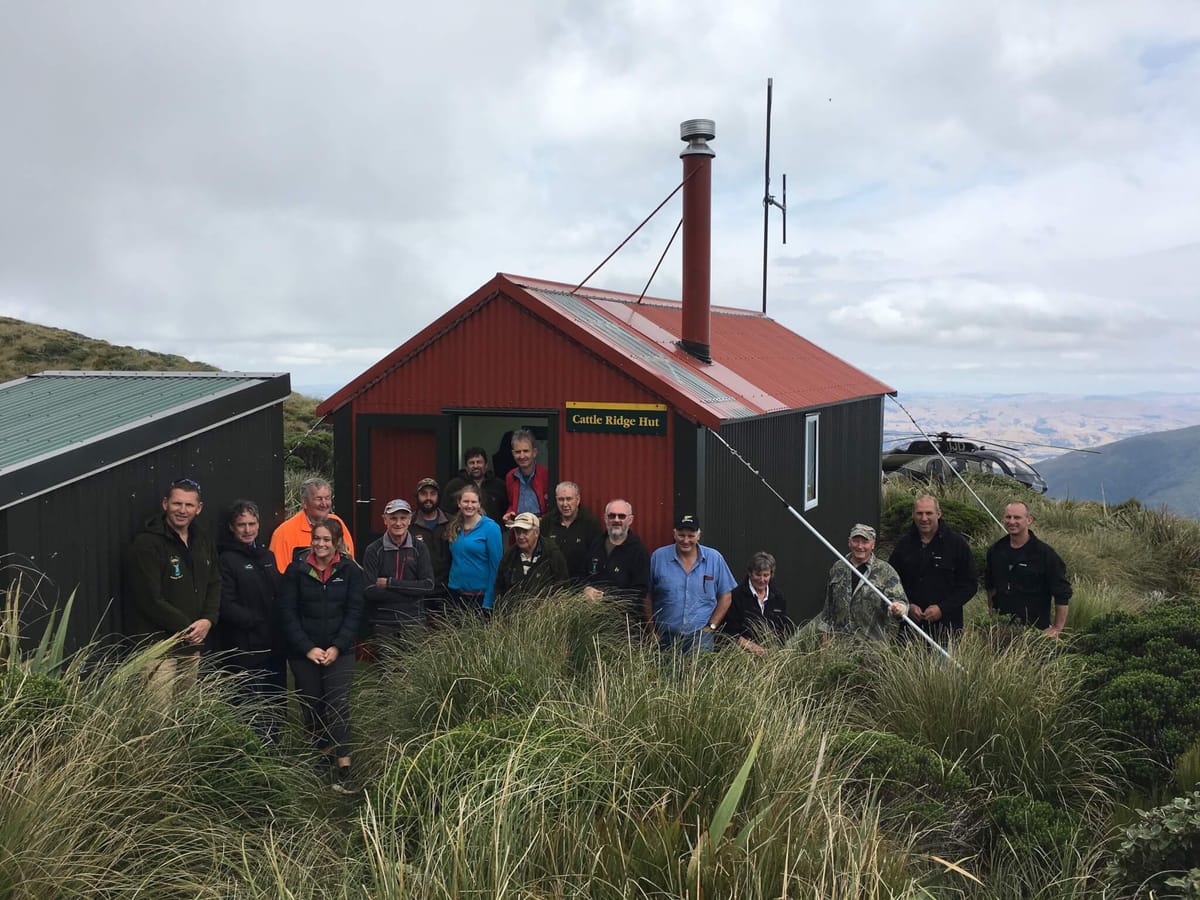The Game Animal Council is welcoming Conservation Week and highlighting the great conservation and community-led volunteer work done by hunters through the ‘Hunters for Conservation’ #huntingisconservation badge.
“Hunters spend a lot of time in our remote areas and are extremely passionate about conservation and looking after our backcountry heritage,” says Game Animal Council General Manager Tim Gale. “Most hunting sector organisations do not seek recognition for the conservation contributions they make, yet there are some fantastic projects going on largely undertaken by volunteers.”
Members of the Central North Island Sika Foundation spent over 1200 hours across 18 months working on the Kaimanawa Whio Recovery Project. Volunteers installed, set, maintain and check 183 stoat and rat traps along the Kaipo and Oamaru Rivers. Early indications are that the whio population is already starting to benefit from this work.

Since 2011 the Fiordland Wapiti Foundation have carried out extensive trapping as part of the whio project in the wapiti area. They now operate and maintain 500 traps in this remote country and are making a major contribution to an increase in whio numbers. The Foundation is also a supporter of the Kea Conservation Trust helping to undertake kea surveying and banding in the Stuart Mountains and earlier this year they partnered with DOC and the Game Animal Council on the Fiordland Wapiti Area Venison Mince Project.
The New Zealand Deerstalkers Association which has 8,500 members across 48 branches is an extremely strong supporter of conservation work. Its members are closely involved with the Backcountry Trust and have contributed a lot of volunteer time and effort into the maintenance of tracks and huts all across our backcountry. NZDA branches support many other conservation initiatives, including the recent Fiordland Wapiti Area Venison Mince Project and members are also involved with predator trapping projects.
Safari Club International (NZ) have provided critical financial support to the Sika Foundation’s Whio Project as well as the Fiordland Wapiti Area Venison Mince Project. They also support a predator control programme in Aorangi Forest Park and maintain two huts in the South Island.
The Game Animal Council, while supporting other hunting sector bodies in their work, has over the last couple of years worked with Zero Invasive Predators (ZIP) on the successful Perth Valley Project. This has included measuring the susceptibility of tahr to aerial 1080 and minimising the risk posed to kea from by-kill.
Unaffiliated hunters also contribute to conservation and predator trapping as part of their involvement with various conservation organisations. For instance, ECOED’s kiwi programme in the Kaweka Forest Park benefits from the work hunters do checking and setting traps and releasing kiwi back into the Park.

“Hunters have an important role to play in New Zealand’s conservation efforts yet we too often concentrate on areas where there is disagreement between hunters and other conservationists. The reality is that there is far more that unites us than divides us and this week is a good opportunity to focus on that.”
“The Game Animal Council will continue to work for greater alignment between the hunting and conservation sectors and the possibility of more collaborative conservation projects in the future.”
The NZ Game Animal Council is a statutory organisation responsible for the sustainable management of game animals and hunting for recreation, commerce and conservation.

